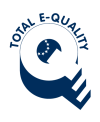Research at the ARL
The uniqueness of the Academy is drawn from close voluntary cooperation between researchers from the spatial and planning sciences and practitioners of spatial planning and development. Joint, cross- and transdisciplinary cooperation in working groups and projects brings together the knowledge of experts from both academia and practice.
Working Groups
Selected, thematically focused research questions are tackled in countrywide Working Groups (AK) with a maximum lifespan of three years. The choice of topic and the establishment of the working group are based on a specific research concept. A Working Group is usually preceded by pilot studies and research colloquiums on the state of research, and prepared by a core group selected by the Monitoring Committee. Participation in the Working Groups is based on responses to Calls for Membership.
Applications are judged according to specialist excellence, and evidence and written expressions of interest in the research topic. Criteria such as the promotion of young professionals, gender equity and internationalisation are also taken into account. The core group selects the participants who are then appointed by the Monitoring Committee.
International Working Groups
For specific internationally relevant issues the ARL has begun to establish an increasing number of International Working Groups (IAK), either alone or in cooperation with partner institutes. The working language is usually English and the majority of members come from other countries.
Ad-hoc Working Groups
Short-term Ad-hoc Working Groups (AAK) are formed to use recent research findings to produce action-oriented recommendations on current issues and problems in spatial development and planning, particularly with the aim of providing policy advice.
Regional Working Groups
The ARL Regional Working Groups (LAG) are ongoing forums for discussion between academia and practice on the level of the German federal states and concentrate on more regionally focused research. The ARL has set up seven Regional Working Groups, each of which tackle issues of more regional interest, either currently relevant or fundamental in nature, in Subsections (AG) of the LAG with a limited lifespan. The Regional Working Groups autonomously add to their membership in line with the criteria appropriate in each case. Members are then formally appointed by the Steering Committee of the ARL. The research topics of the LAG Subsections reflect the research concept of the ARL and the regional relevance of the topic.
As frequently as possible, an effort is made to tackle larger thematic issues through cooperations between countrywide Working Groups and a number of LAG Subsections. This has recently been undertaken with a focus on topics such as demographic change, the development of cultural landscapes and the energy transition.
The LAGs (in German)
Information and Initiative Group
Information and Initiative Group (IIK) are set up by the Steering Committee of the ARL to address fields of spatial planning that are of long-term relevance. They work continuously in an intensive dialogue between practice and research and produce regular recommendations for both fields. There are currently three Information and Initiative Group. Regular changes in group membership are made in line with the criteria that also apply for the Working Groups. The programmes of the Information and Initiative Group are approved by the Steering Committee on the basis of the specific research concept of each group.
Editorial Committees
Editorial Committees (RA) are tasked with publishing handbooks and reference guides on urban and spatial development at regular intervals. The ARL is particularly well placed to produce such works thanks to the competences provided by its large network in the fields of spatial sciences and spatial planning. Here the current state of knowledge is assessed and summarised in a fashion suitable for the target audience.



